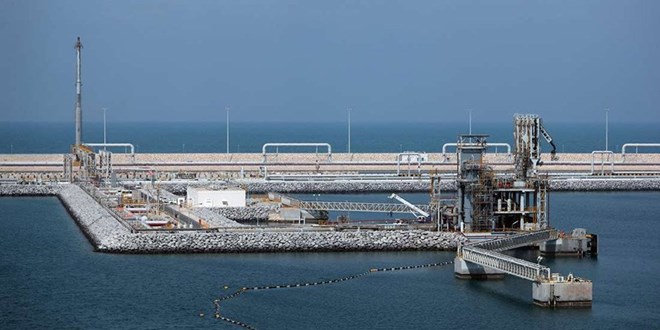
Monday December 3, 2018

BEIRUT, Lebanon — The tiny, wealthy Persian Gulf state of Qatar will withdraw from OPEC in January, the country’s energy minister said on Monday.
The minister, Saad Sherida al-Kaabi, said the move would allow Qatar to focus on its gas industry and dismissed the idea that the withdrawal was connected to politics.
Qatar is one of the smallest producers in the Organization of the Petroleum Exporting Countries, but it is the world’s largest exporter of liquefied natural gas, giving its citizens the highest per capita income of any country.
In June 2017, Saudi Arabia and three other Arab nations imposed a travel and trade boycott on Qatar, accusing it of financing terrorism and interfering in the internal affairs of other states.
No other countries have joined the boycott, and the United States, which has a large military base in Qatar, has sought to end the feud.
In his remarks to reporters on Monday, Mr. Kaabi said Qatar had communicated its decision to withdraw from OPEC to the organization that morning. Qatar, an OPEC member for nearly six decades, still planned to attend a meeting in Vienna this week, he said.
At 600,000 barrels a day, Qatar’s oil output is about 2 percent of OPEC’s total — compared with more than 10 million barrels produced by Saudi Arabia or the three million produced by the United Arab Emirates.
But Qatar’s decision to leave OPEC is nonetheless a blow to the group and a possible sign of tensions within it.
Qatar, an OPEC member since 1961, has been a mediator in internal rivalries and it helped broker a production-cutting deal between OPEC, Russia and other producers in 2016 that helped lift prices from their lows at the time.
Saudi Arabia and Russia, which is not an OPEC member, have largely been dictating terms with regard to production since then. That has irritated other OPEC members, especially Iran.
Saudi Arabia and Russia “dictate any cooperation to balance the market,” said Ayham Kamel, head of Middle East and North Africa for Eurasiagroup, a research firm. “It is not actually the other states.”
Qatar’s defection could raise questions about OPEC’s ability to enforce future production cuts. And even as the country professes a heightened focus on natural gas, if it were to make new oil finds, it could increase production without OPEC constraints.
For now, Qatar’s modest contributions to the oil market will most likely dampen the effect of its move on prices, which have been battered in recent weeks by fears of a glut.
“In terms of immediate oil market impact, it doesn’t feel as if it makes much difference,” said Richard Mallinson, an analyst at Energy Aspects, a market research firm.
Prices surged on Monday after it emerged at the Group of 20 meeting over the weekend that Russia and Saudi Arabia would continue to cooperate on managing the market. The price of Brent crude, the international benchmark, rose above $63 a barrel.
In focusing on natural gas, Qatar is betting on the vast resources it controls in the waters that surround it. Consumption of liquefied natural gas, which is chilled to liquid form and transported on special ships, is growing faster than that of natural gas or oil.
The country shares the world’s largest gas field, the so-called North Field, with Iran, giving it reason to maintain a good working relationship with Tehran despite the continuing tensions between Iran and Saudi Arabia.
Natural gas does not come under OPEC’s purview and involves different players. Other top exporters of liquefied natural gas include Australia, Russia and, increasingly, the United States.
There was little apparent reason for Qatar’s natural gas activities to conflict with its membership in OPEC. The country has spent decades building its natural gas industry while belonging to the group. It has developed its resources in partnership with major oil companies including Exxon Mobil and Royal Dutch Shell.
Qatar is a member of a natural gas producers’ group, the Gas Exporting Countries Forum, which has its headquarters in Doha, the country’s capital.
Ben Hubbard reported from Beirut, and Stanley Reed from London.